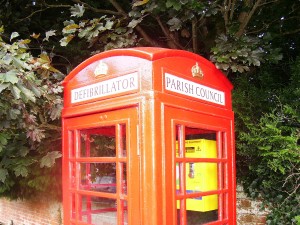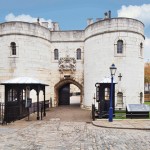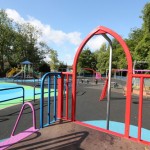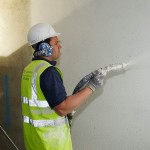Rural Phone Box Defibrillators
Rural Phone Box Defibrillators.
The British Coatings Federation (BCF) is partnering with BT and the Community HeartBeat Trust in a new nationwide scheme to install life-saving defibrillators in rural phone boxes.
Long Wittenham in Oxfordshire was the first village in the UK to have its red phone box refurbished under the scheme, courtesy of free paint from British Coatings Federation member HMG Paints. The local Parish Council took advantage of BT’s ‘Adopt a Kiosk’ scheme and adopted their iconic red phone box for just £1. With 50% funding from the Parish Council and 50% raised from villagers, it took no time at all to raise the £2,000 necessary to install the defibrillator, which can deliver vital medical treatment in the first crucial minutes following a cardiac arrest. BCF Members AkzoNobel Decorative Coatings, Craig & Rose, Crown Paints, Firwood Paints, Indestructible Paints, James Briggs, Manor Coatings, PPG Architectural Coatings, Pronto Industrial Paints, Sherwin-Williams, Tor Coatings and Valspar will provide free paint to renovate the phone boxes prior to conversion to a defibrillator, and BCF Associate Member Fenton Packaging will be giving free paint cans to the paint manufacturers.
 Richard Schofield, of Community HeartBeat Trust, who had the original idea behind the rural phone box defibrillators scheme, said: “There are thousands of phone boxes in rural locations throughout the UK, and many of them are sitting idle. Over the next five years, we’re aiming to encourage the UK’s rural communities to install a defibrillator in their local phone box, with the aim to create a national network of two and half thousand defibrillators.”
Richard Schofield, of Community HeartBeat Trust, who had the original idea behind the rural phone box defibrillators scheme, said: “There are thousands of phone boxes in rural locations throughout the UK, and many of them are sitting idle. Over the next five years, we’re aiming to encourage the UK’s rural communities to install a defibrillator in their local phone box, with the aim to create a national network of two and half thousand defibrillators.”
Following a cardiac arrest the chances of survival drop dramatically every minute. The UK Resuscitation Council recommends that a defibrillator should be available when medical treatment is more than five minutes away, which would include most rural locations in the UK.
Inside the phone box, in place of the telephone unit, the defibrillator is housed in a lockable steel box. When someone calls 999, they will be told there is a defibrillator in the local phone box, and will be given the code to open the box. Once the electrode pads are attached to a casualty, the defibrillator will identify if a ‘shock’ is needed and will instruct the rescuer using step-by-step voice instructions.
Whilst the British Coatings Federation will provide the paint system that will revitalise the kiosk, BT will take on board the cost of maintaining the electricity supply to the phone boxes, so the equipment will be available 24 hours a day, seven days a week.







